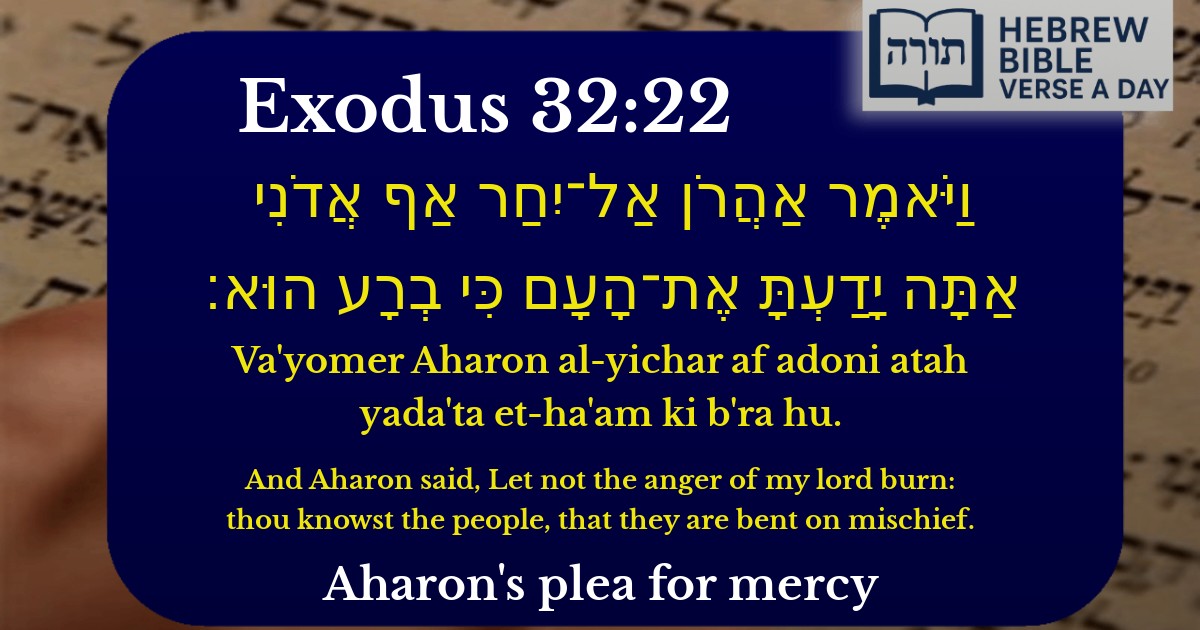Join Our Newsletter To Be Informed When New Videos Are Posted
Join the thousands of fellow Studends who rely on our videos to learn how to read the bible in Hebrew for free!
Hebrew Text
וַיֹּאמֶר אַהֲרֹן אַל־יִחַר אַף אֲדֹנִי אַתָּה יָדַעְתָּ אֶת־הָעָם כִּי בְרָע הוּא׃
English Translation
And Aharon said, Let not the anger of my lord burn: thou knowst the people, that they are bent on mischief.
Transliteration
Va'yomer Aharon al-yichar af adoni atah yada'ta et-ha'am ki b'ra hu.
Hebrew Leining Text
וַיֹּ֣אמֶר אַהֲרֹ֔ן אַל־יִ֥חַר אַ֖ף אֲדֹנִ֑י אַתָּה֙ יָדַ֣עְתָּ אֶת־הָעָ֔ם כִּ֥י בְרָ֖ע הֽוּא׃
Parasha Commentary
📚 Talmud Citations
This verse is not quoted in the Talmud.


Context of the Verse
The verse (Shemot 32:22) appears during the episode of the Golden Calf, when Moshe confronts Aharon about the people's sin. Aharon responds by pleading with Moshe not to be angry, acknowledging the people's inclination toward wrongdoing.
Aharon's Defense
Rashi explains that Aharon was not making excuses for his own actions but rather emphasizing the people's rebellious nature. The phrase "כִּי בְרָע הוּא" ("that they are bent on mischief") suggests that the people were predisposed to sin, as they had just emerged from Egyptian idolatrous influences (Rashi on Shemot 32:22).
The Nature of the People's Sin
The Midrash Tanchuma (Ki Tisa 19) elaborates that Aharon was highlighting the people's impatience and lack of faith. They assumed Moshe had died and demanded an idol, demonstrating their spiritual weakness. Aharon sought to delay them, hoping Moshe would return before they sinned further.
Aharon's Humility
Rambam (Hilchos De'os 1:6) notes that Aharon's words reflect his humility and desire for peace. By addressing Moshe as "אֲדֹנִי" ("my lord"), he showed deference, attempting to calm Moshe's anger and prevent further strife.
Lessons in Leadership